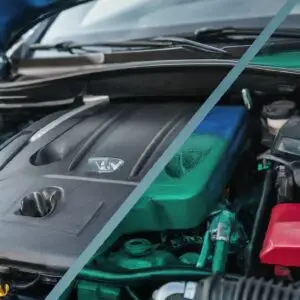State Inspection vs. Regular Maintenance: What’s the Difference?

Maintaining a vehicle isn’t just about ensuring it runs smoothly—it’s also about adhering to state regulations that keep drivers and pedestrians safe. In Texas, where car state inspections are a legal requirement, understanding the difference between these inspections and regular maintenance is essential for every vehicle owner. Both practices are crucial, but they serve different purposes and have different requirements.
State Inspection Overview
A state inspection in Texas is a mandatory check that ensures vehicles meet specific safety and emissions standards set by the state. This process involves several key components:
- Safety Checks: This includes examining the brakes, lights, mirrors, seat belts, and steering mechanism to ensure they are all in proper working order.
- Emissions Testing: Depending on the county, emissions testing may be required to measure the amount of pollution the car produces. This is crucial for reducing environmental impact.
- Registration Validation: The inspection also verifies that the vehicle’s registration is current and valid. 4
State inspections are conducted annually and must be performed at licensed inspection stations. Failing an inspection can result in fines and inability to renew your vehicle’s registration.
Regular Maintenance Overview
Unlike state inspections, regular maintenance is not mandated by law but is recommended by vehicle manufacturers. Regular maintenance includes tasks aimed at prolonging the life of the vehicle and ensuring it performs optimally:
- Oil Changes: Essential for keeping the engine running smoothly and efficiently.
- Tire Rotations and Alignment: Helps in maintaining even tire wear and good handling of the vehicle.
- Brake Inspections: Ensures that brake pads and rotors are in good condition to prevent potential failures.
- Fluid Checks: Keeps coolant, transmission, brake, and other fluids at proper levels and conditions.
These tasks are generally recommended based on vehicle mileage or specific time intervals, such as every 5,000 miles or every six months.
Key Differences
- Scope: State inspections are specifically designed to ensure a vehicle meets Texas safety and emissions standards. Regular maintenance, however, covers a broader range of checks and repairs to enhance the overall functionality and longevity of the vehicle.
- Frequency: Inspections are annual, while maintenance schedules are more frequent and varied, depending on the vehicle’s usage and manufacturer recommendations.
- Goals: The primary goal of state inspections is to comply with legal standards for safety and emissions. In contrast, regular maintenance is focused on preventing future problems and maintaining the vehicle’s performance.
Conclusion
For vehicle owners in Lewisville, TX, understanding and keeping up with both state inspections and regular maintenance is key to ensuring that their vehicle is safe, environmentally friendly, and reliable over time. Ignoring either can lead to significant issues, ranging from fines and penalties to major mechanical failures.
At Mike’s Tire, we understand the importance of both state inspections and regular maintenance. We provide thorough, reliable service in both areas to ensure your vehicle meets all legal requirements and runs at its best.
Don’t wait for the warning lights on your dashboard to remind you of your vehicle’s needs. Schedule your next car state inspection with Mike’s Tire in Lewisville, TX today and ensure your vehicle stays in top shape. Drive safe, drive smart, and keep your car road-ready with Mike’s Tire!
